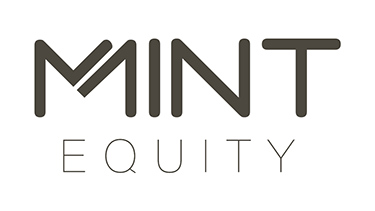As buying property becomes harder, renting for life becomes the only option for many. Some planned changes to the NSW rental laws are reflecting this lifestyle, placing more rights in the hands of tenants. Whilst some of these changes appear fair and reasonable, some investors are thinking twice about buying or holding onto their investment properties.
Acceptance for pets growing
NSW is behind other states like Vic and Qld when it comes to legislated acceptance of pets. Victoria’s reform states that pets can’t be unreasonably refused by landlords and Queensland are looking at ways to make it easier for landlords and tenants to agree on having a pet.
And when 63% of Australians have a pet, and only 5% of properties advertise ‘pet friendly’ – there is room for landlords to offer this feature, and maybe even be paid a premium for it.
Key NSW proposed tenancy law recommendations
Benefit to the tenant
The rent payable under a periodic agreement may not be increased more than once in any period of 12 months.
A new minimum standard for properties. See Residential Tenancies Amendment (Review) Bill 2018 for more information
Tenants making minor alterations in properties. See Residential Tenancies Amendment (Review) Bill 2018 for more information
It’s an offense (with a maximum penalty of $2,200) for the failure of a landlord or landlord’s agent to give 2 copies, or 1 electronic copy, of the completed condition report to the tenant before or at the time the tenant signs the residential tenancy agreement.
Tenants allowed to get rectification orders from Fair Trading for repairs.
The tenant will not be held liable if damage to the premises is caused by another person (ie, not tenant or co-tenant) if it occurred during a domestic violence event of which the tenant or co-tenant was a victim.
Landlords or landlords’ agents can’t publish photos or videos made of the interior of premises in which any of the tenant’s possessions are visible without first obtaining the written consent of the tenant. The tenant cannot unreasonably withhold consent. The tenant may reasonably withhold consent if the tenant is in circumstances of domestic violence.
A termination notice given by a landlord because the tenant has failed to pay rent, water usage charges or charges for the supply of electricity, gas or oil has no effect unless the rent has, or other charges have, remained unpaid for not less than 14 days before the termination notice is given.
A tenant or co-tenant may give a domestic violence termination notice to the landlord and each other co-tenant, if any, if the tenant or co-tenant or an occupant who is the tenant or co-tenant’s dependent child is in circumstances of domestic violence (ie a Domestic Violence Order DVO is in place).
Repairs to a smoke alarm must only be carried out by a landlord.
Benefit to the landlord
The Tribunal may, on application by a landlord, order a tenant to pay compensation to the landlord for any loss (including loss of rent) caused by the abandonment of the residential premises by the tenant. Up to 4 weeks rent.
Allow landlords access to premises without the tenant’s consent to take photographs, or make a visual recording, of the interior in order to advertise the premises for sale or lease. The landlord can exercise this right only once in a 28-day period preceding the commencement of marketing the premises for sale or lease or the termination of the residential tenancy agreement. However, they can’t publish them without the tenants consent (see point 4 under benefit to the tenant).
Why investors are concerned
The changes for tenants in domestic violence situations are very much fair and reasonable as no person should feel a financial burden or legal obligation to stay in a dangerous living arrangement.
The other changes will affect an investors decision to continue with their property portfolio and if benefits out way the costs. Smart Property Investor readers raised their concerns in a recent article.
“It’s hard enough to get a bad tenant out of your house and this law makes it harder; I will certainly be offloading my rental property, it’s not worth the bother,”
“If tenants start putting holes in the wall for pictures, who pays to fill and repaint the walls?”
“If landlords don’t have grounds then less people will want to invest in rental properties. This in turn means less rentals available, making the housing shortage even worse.”
“In years gone by, you rented while you waited to buy. Whereas now, renting might be a lifetime option. So, if it’s going to be a lifetime option, laws have to change to reflect that.”
Refinancing an investment property
If costs to landlords do increase due to these changes, one aspect to review is the mortgage interest rate on the investment property. With investment home loan interest rates as low as 3.74%*, now is a good time to consider refinancing.
Speak with one of our mortgage brokers to find out how much you can save on your investment home loan.
*Interest rate current at time of publishing.


